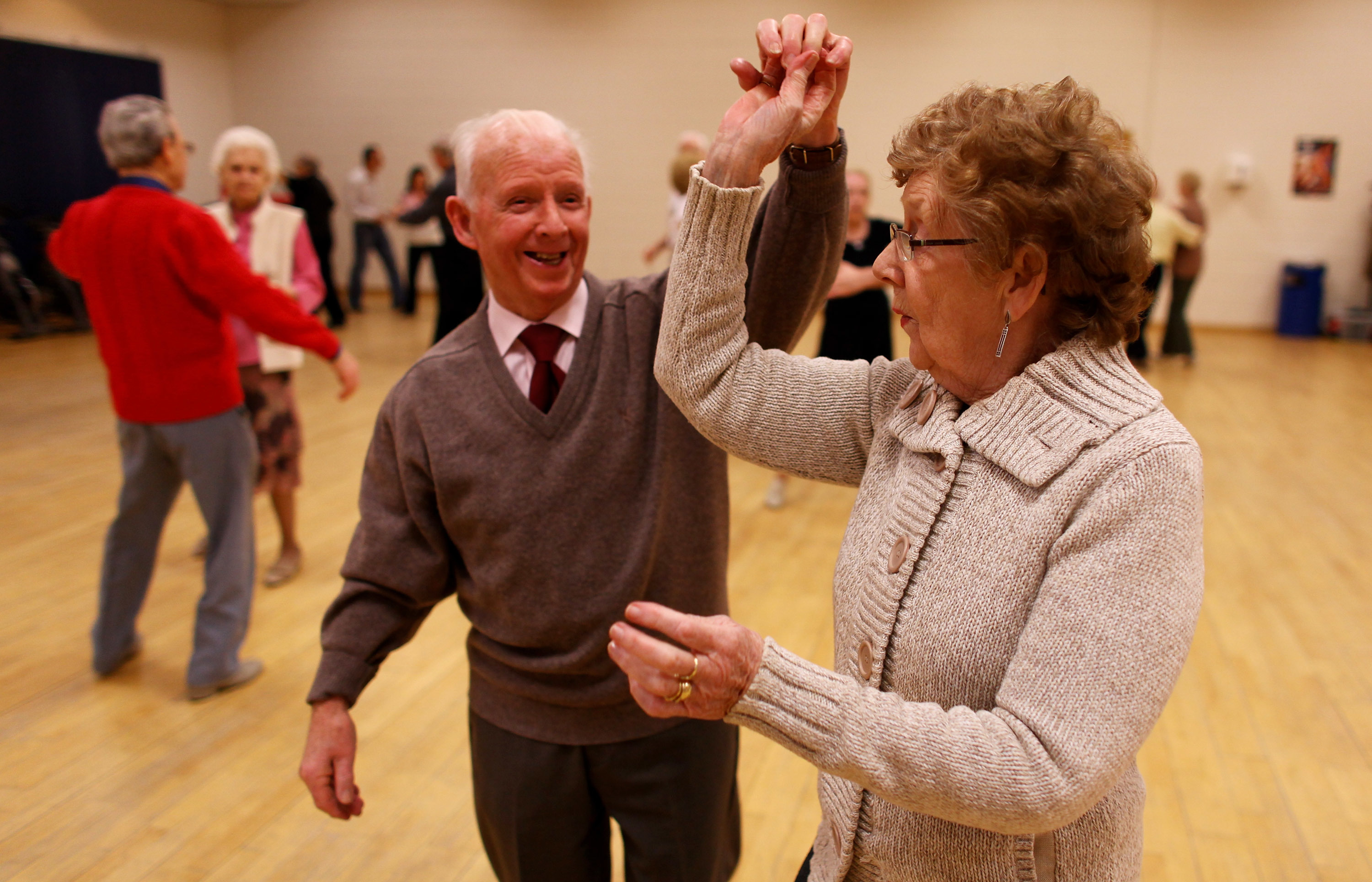
If that’s true then we’re living in an increasingly impoverished society.
It’s not money that so many people are desperate for, it’s simple human contact.
Our probe has highlighted the terrible toll loneliness is taking on the isolated in society. The crippling physical health issues, the shortened life expectancy, the devastating impact on mental health.
The problem is hidden in plain sight. We all know about it, but the authorities, charities and us as individuals seem to be struggling to come up with effective ways to tackle the causes and effects of loneliness.
Just last week charity Age UK warned that hundreds of thousands of older people in Britain are facing a “double whammy” of unmet care needs and chronic loneliness.
More than a million older people across the country need care but are simply not receiving it from any source – family, friends, neighbours or their local council.
The charity estimates that a shocking 300,000 of those people were also blighted by loneliness.
Of course, it’s not just the elderly who suffer from loneliness. People of any age can fall under the shadow of this cruel, silent torment.
Whatever age, the implications for health can be huge,
Scientists are increasingly focussing on how loneliness affects the body, both physically and mentally. They have identified significant links between loneliness and illness and are hunting down the biological mechanisms that make it such a danger.
They are going right down to the building blocks of life – looking at the impact at a molecular level – and they’re finding that social isolation changes the human genome in deep, long-lasting ways.
In the early part of human evolution, when our very survival depended on co-operation and communication, social isolation was a huge risk. Being alone was literally life-threatening. So the human brain developed to need social interaction.
Think of it like hunger. When you need food you get a hunger pang. The longer you go without food, the more painful it gets. Loneliness, like hunger, is a deep-rooted, instinctive
signal that something is wrong. And extended periods without human contact cause emotional pain and damage to health.
Loneliness essentially starves people on a profound emotional level.
Today, social isolation is often unavoidable. Busy lifestyles are taking their toll on the isolated
But there are moves afoot to turn this worrying situation around.
Charities, Government and other organisations are working hard to identify and tackle the problems at the root of the loneliness epidemic.
Here several of those bodies give us their view of the situation and how we can go about dealing with it.
Let’s put our elderly right back at the heart of family life – Esther Rantzen, Silver Line founder
When I get off the phone,” said one caller to the Silver Line helpline, “I feel like I belong to the human race”.
It’s a national disgrace that anyone should feel they no longer have the right to be part of the human race, simply because they are older.
In other cultures the elderly are the centre of their family. We must change our attitudes to older people in Britain.
There are some interesting things happening in housing, such as retirement villages where the local community is welcomed in, so you put things like a doctor’s surgery or a swimming pool, or even restaurants into the complex so that it doesn’t turn into an old people’s ghetto.
It can also offer activities in the company of others so that people aren’t entirely on their own. They can be independent but still have company.
It’s easy to claim we are helpless to change things, times are so tough.
But in reality there is something each of us can do.
Two years ago the Silver Line Helpline for older people was launched.
Thousands face deadly health struggle as authorities struggle to deal with effects of loneliness – click here to read more
When, last Christmas, I asked callers why so many of them were alone, the answer was always the same – their families were “too busy” to see them.
Surely not too busy to pick up the phone?
Given the fact that so many older people feel lonely, we must find a way of reaching out and giving them back their confidence and self-worth.
The Silver Line Helpline, is free, confidential, and open 24 hours every day, and since its launch has taken almost 800,000 calls.
Why do so many ring a helpline to speak to a stranger? Because for the proud older generation there is a stigma attached to loneliness.
When I wrote about my own feelings, living alone for the first time at age 71, many older people wrote to say they find it difficult to admit even to their own families that they feel lonely.
One of our callers admitted that she didn’t feel able to speak to us in front of her son.
She didn’t want him to be distressed by her loneliness.
“I don’t want to be a burden,” older people constantly tell us.
Sundays and evenings can be especially difficult times for many people on their own.
Our callers tell us it is crucial for Silver Line to remain open through the nights when loneliness can really strike home.
“For 35 years,” said one caller, “I had a husband who always gave me a hug when things went wrong and told me everything would be alright. Now I have to tell myself.”
At night we receive our most emotional calls, many from people who feel life is not worth living.
One man said: “It was the choice between ringing Silver Line and jumping in the canal.”
Loneliness is a serious health hazard, and the impact on mental health is just as acute.
Ella wrote to me to say that now she is in her 80s, spending two or three days every week imprisoned in her home, with nobody to talk to, she faces “another pointless day when I’m a waste of space”.
In effect she is “in solitary confinement”, usually the punishment for a serious crime.
But the only crime she committed was to have grown old.
The lessons we have learned in the last two years could, we hope, spur families to pick up the phone themselves.
As Margaret, a Silver Line caller who lives in Scotland, told me: “We oldies do still have lots to offer.”
Conversation, laughter, companionship, even if it’s only a phone call, can make all the difference.
Our Silver Line team take a real interest in older people, “It’s not just a voice” one night-time caller told us, “It’s a person.”
“Because she’s interested” one caller told us, “I feel interesting.”
Individuals, families and friends need to moderate their so-called business and put older people in their lives.
Even if all you do is remind them that a service like Silver Line is there for them, you may be transforming their lives.
Because, as Margaret told me, “I look forward to a blether with my new friends ….it certainly lights up my week”.
The Silver Line is Freephone 0800 4 70 80 90.
Make a change
Politicians are only now waking up to the awful impact this social issue is having on people of all ages in Scotland.
Over the coming weeks this paper will examine how loneliness is affecting people, the factors contributing to the problem and efforts made to alleviate it.
Our analysis will not only delve into the larger projects and charitable works that target loneliness but will also look at how people can make a difference in their own lives and the lives of those around them.
There are services available to help you if you are lonely.
They may be council-run, organised by health boards or charities.
Our series will explore what they are, how well they are supported and if they could be better.
If you are worried someone you know is suffering from loneliness or maybe feel you need help, we’ll give suggestions of things you can do.
No-one should be left to suffer on their own.
With your help we can hopefully make changes that will improve lives.
Does loneliness affect you? Have you got a story about it?
Write to John Paul Breslin, The Sunday Post, Skypark, 8 Elliot Place, G3 8AP or email jbreslin@sundaypost.com
READ MORE
Thousands face deadly health struggle as authorities struggle to deal with effects of loneliness
Chronic loneliness and unmet care needs: Age UK reveal concerns over quality of life of pensioners

Enjoy the convenience of having The Sunday Post delivered as a digital ePaper straight to your smartphone, tablet or computer.
Subscribe for only £5.49 a month and enjoy all the benefits of the printed paper as a digital replica.
Subscribe